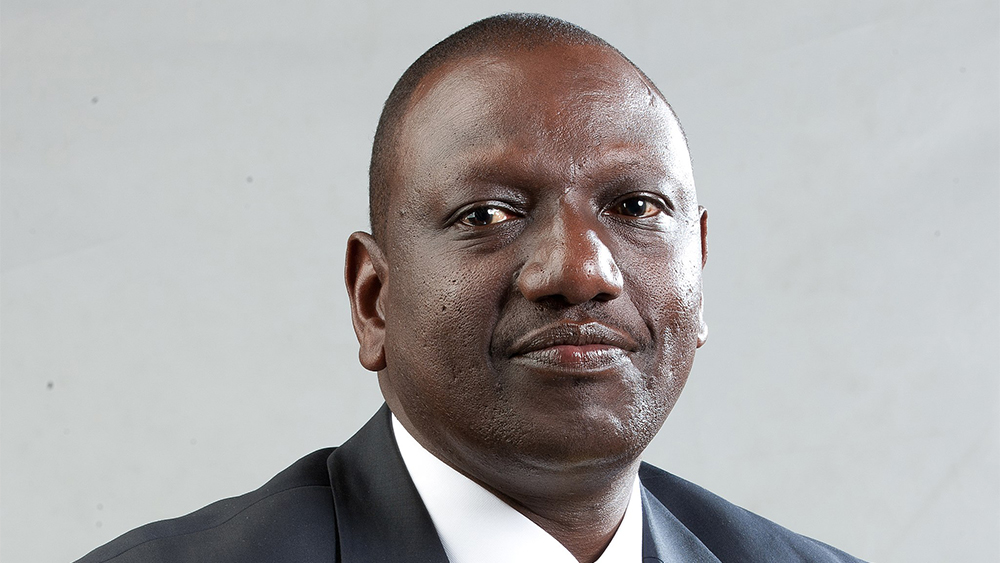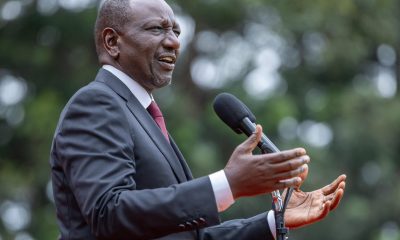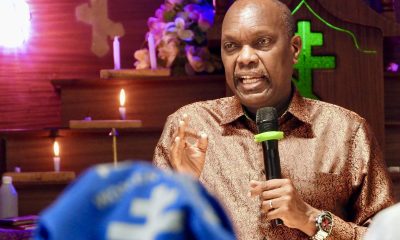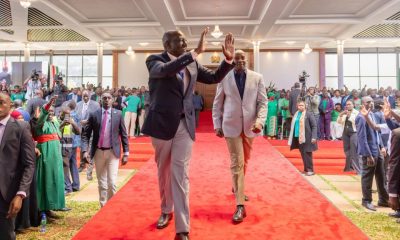Politics
Can President William Ruto Keep His Promise to Fire Over-60 Civil Servants?

President William Ruto, Bloated Government and Political Cronies
Ruto’s cabinet is criticized for being filled with political cronies and sycophants who, according to critics, add little value to the nation. Among the prominent figures targeted by this new policy are:
- Prime Cabinet Secretary/Foreign Affairs CS Musalia Mudavadi (63): Besides his age, Mudavadi’s office is deemed unconstitutional, and it is widely believed that he was appointed to attract votes from the Western Region/Luhya Nation.
- Lands CS Alice Wahome (65)
- Education CS Ezekiel Machogu (68)
- National Treasury CS Prof. Njuguna Ndung’u (64)
- Attorney General Justin B. Muturi (68)
- Energy and Petroleum CS Davis Chirchir (64): Chirchir has been embroiled in corruption allegations.
These officials represent just a fraction of the over-aged members of the government. Interestingly, President Ruto himself will be 61 by the time of the next election in 2027.
Bold Measures or Empty Promises?
Ruto has also announced several cost-cutting measures to curb government expenditure. These include:
- Reduction of Advisors by 50%: This directive aims to cut down the number of government advisers by half immediately.
- Dissolution of 47 State Corporations: The government will dissolve these corporations, which have overlapping functions, and integrate their responsibilities into respective line ministries. Staff will be transferred to ministries and other state agencies.
- Suspension of Hiring Chief Administrative Secretaries (CAS)
- Removal of Budgets for the First Lady, Second Lady, and the Spouse of the Prime Cabinet Secretary: This move aims to eliminate unnecessary expenditure.
- Abolishment of Confidential Budgets in Executive Offices: Confidential budgets, including those in the President’s office, will be removed.
- Reduction of Renovation Budgets by 50%
- Suspension of New Vehicle Purchases for One Year: This excludes purchases for security agencies.
- Ban on Non-Essential Travel: All non-essential travel by state officers is suspended.
- Prohibition of State Officers from Participating in Harambees: The Attorney General is directed to draft legislation to enforce this, aiming for transparent contributions to public, charitable, and philanthropic activities.
The Public’s Response
Despite these measures, the public remains skeptical. Deadly anti-tax riots have rocked Kenya, with many citizens blaming the International Monetary Fund (IMF) for the austerity measures causing widespread economic pain.
Protesters accuse Ruto of being a puppet of the IMF, a sentiment echoed in the graffiti and placards seen during demonstrations.
Will President William Ruto Walk the Talk?
The critical question remains: will President Ruto fire the senior officials in his government who are above 60?
Including figures like Musalia Mudavadi, whose appointment many see as a strategic political maneuver, raises doubts.
People might perceive the directive to retire civil servants at 60 as a populist move aimed at placating the youth and silencing critics.
The government’s credibility hinges on Ruto’s ability to enforce these directives impartially.
If he fails to act against high-profile figures within his own cabinet, it will underscore the perception of a government more interested in optics than substantive change.
The Larger Picture
Kenya’s economic challenges are significant, and the burden of austerity measures has fallen heavily on the populace.
The IMF’s role in shaping Kenya’s fiscal policies has become a focal point of public discontent. Countries like Nigeria also experiencing backlash against similar economic reforms imposed by multilateral lenders.
Conclusion
Kenya Insights allows guest blogging, if you want to be published on Kenya’s most authoritative and accurate blog, have an expose, news TIPS, story angles, human interest stories, drop us an email on [email protected] or via Telegram
-

 Grapevine6 days ago
Grapevine6 days agoAlleged Male Lover Claims His Life Is in Danger, Leaks Screenshots and Private Videos Linking SportPesa CEO Ronald Karauri
-

 Lifestyle1 week ago
Lifestyle1 week agoThe General’s Fall: From Barracks To Bankruptcy As Illness Ravages Karangi’s Memory And Empire
-

 Grapevine2 days ago
Grapevine2 days agoRussian Man’s Secret Sex Recordings Ignite Fury as Questions Mount Over Consent and Easy Pick-Ups in Nairobi
-

 Investigations2 weeks ago
Investigations2 weeks agoEpstein Files: Sultan bin Sulayem Bragged on His Closeness to President Uhuru Then His Firm DP World Controversially Won Port Construction in Kenya, Tanzania
-

 News2 weeks ago
News2 weeks agoAUDIT EXPOSES INEQUALITY IN STAREHE SCHOOLS: PARENTS BLED DRY AS FEES HIT Sh300,000 AGAINST Sh67,244 CAP
-

 Business2 weeks ago
Business2 weeks agoKRA Can Now Tax Unexplained Bank Deposits
-

 Investigations1 week ago
Investigations1 week agoEpstein’s Girlfriend Ghislaine Maxwell Frequently Visited Kenya As Files Reveal Local Secret Links With The Underage Sex Trafficking Ring
-

 News1 week ago
News1 week agoState Agency Exposes Five Top Names Linked To Poor Building Approvals In Nairobi, Recommends Dismissal After City Hall Probe



























